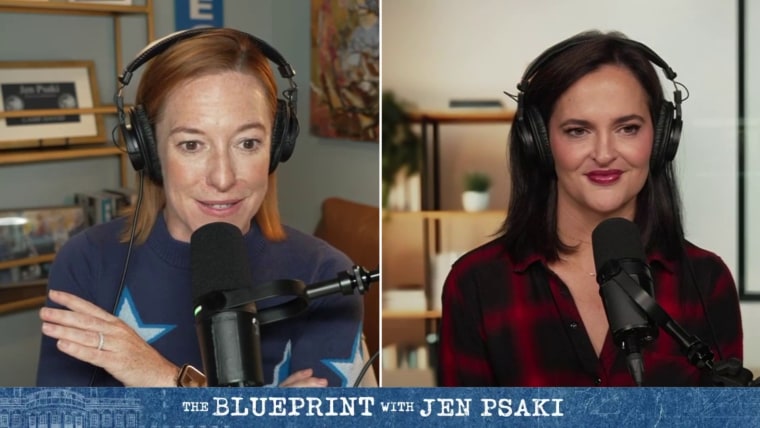Maine Gov. Janet Mills has entered the race to unseat Republican Sen. Susan Collins in next year’s election, rounding out a primary field in what could be the most competitive Senate race in the country — or at least the one in which Democrats have the best chance of flipping a seat. While Democrats in Washington would love it if the other candidates would step aside so Mills could focus on the general election against Collins, some on the left didn’t want Mills entering at all, preferring a clearer path to the nomination for a more progressive candidate.
They’re all wrong. An absurd amount of energy is spent trying to avoid primaries, when, in fact, Democrats should want more of them.
Collins is target No. 1 for Democrats in the midterms, as the only Senate Republican up for re-election from a state Donald Trump lost in 2024. And this Democratic primary is brimming with interesting contenders.
Sometimes, primaries surprise you.
There’s Graham Platner, an oyster farmer and military veteran who combines blue-collar bona fides with passion and charisma. He has become something of an online sensation since he entered the race two months ago, raising millions of dollars and drawing large crowds. There’s Jordan Wood, another progressive with a familiar origin story (clean-cut local boy goes to Washington, works for advocacy group, comes home to run for office). And a few others to boot.
Then there’s Gov. Mills, who was recruited to run by Senate Minority Leader Chuck Schumer, D-N.Y. Mills is exactly what the party in Washington always wants: a familiar and relatively popular elected official who can raise money and has plenty of campaign experience. The Democratic Senatorial Campaign Committee has already formed a joint fundraising committee with her, making the party’s endorsement all but official.
The problem is that Mills is, to be forthright about it, quite old. She’s 77 now, if she wins a Senate seat, she’ll be 79 when she takes office, and she’ll be 85 at the end of her term. There are a few older members of the Senate (shoutout to nonagenarian Chuck Grassley of Iowa, who was born the same year FM radio was invented), but not many. Democrats already have a gerontocracy problem, and running more candidates in their 70s won’t help.
However, the oldest senator to caucus with the Democrats has endorsed Platner. Bernie Sanders, I-Vt., publicly discouraged Mills from running, saying “it would be a really sad state of affairs to have to spend millions of dollars on a divisive primary. We should be focusing on beating Susan Collins, and Platner can do that.”

But Sanders is just as wrong as Schumer and the DSCC. Primaries aren’t necessarily divisive, and a campaign that spends its money well won’t be wasting it; if a candidate is organizing voters and persuading them that he or she is worthy of support, it should be an investment in the general election.
More importantly, a primary is a test that shows what the candidates have to offer. Running for office is difficult, arduous and complex. Lots of people think they’ll be good at it but don’t turn out to be. Plenty of others succeed at doing it a few times and then fail when they try for new offices. Sometimes an experienced candidate isn’t suited to a new political environment.
While many in Washington want a safe choice, what they ought to want is the best candidate — the most skilled, the most strategically smart, the most charismatic, the most appealing to voters. There’s no better way to figure out who that is than to have them battle it out.
There are plenty of examples of a party nominating a candidate it thought was reassuringly moderate but who turned out to be dull and uninspiring and lost anyway.
Sometimes, primaries surprise you. The most dynamic Democrat in the House, Alexandria Ocasio Cortez of New York, won her seat when she primaried a long-serving member of the Democratic leadership. In 2008, everyone thought the presidential nomination belonged to Hillary Clinton, until Barack Obama was bold enough to run against her. A year ago, Zohran Mamdani was an obscure state assemblyman, but the New York mayoral primary showed that he’s an extraordinary political talent. The fact that he wiped the floor with the sitting mayor and a former governor was the proof.
Maybe Graham Platner will prove to be just as talented. Or maybe Janet Mills will demonstrate that she still has the skills that got her elected governor twice. Or maybe one of the other candidates will be even more compelling. But we won’t know until they campaign against one another.
The party in Washington (this applies to both parties, but especially the Democrats) much prefers to play it safe. It wants moderate candidates who have run before and either have their own money or can raise a lot — even if those candidates are electoral Ambien — and the party will put its thumb on the scale for whoever looks like the safest choice.
The motivation isn’t hard to understand; there have certainly been cases in which a party nominates someone too ideologically extreme for a district or a state and it end ups losing a race it could have won. But when that happens, it’s usually because a candidate with little political talent or with huge vulnerabilities — like the train wreck that was 2024 North Carolina GOP gubernatorial candidate Mark Robinson’s campaign — stumbles into the nomination.
At the same time, there are plenty of examples of a party nominating a candidate it thought was reassuringly moderate but who turned out to be dull and uninspiring and lost anyway. The solution, therefore, is not “run moderates” or “run progressives”; it’s to let everyone run and see who has what it takes.
We can’t know yet who that will be in Maine or any of the other states and districts where there will be vigorous primary campaigns heading into next year. But it’s the only way to find out.

